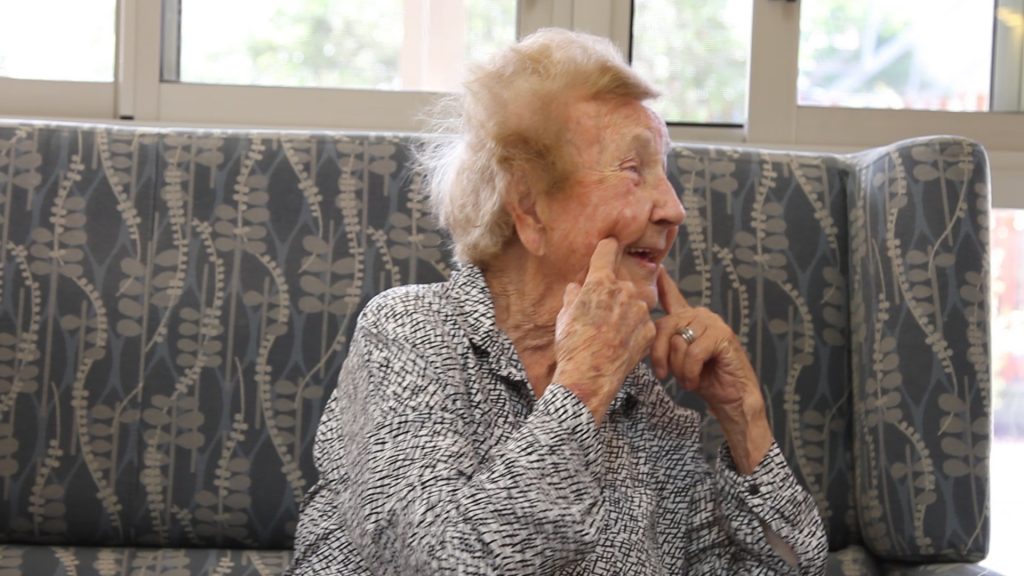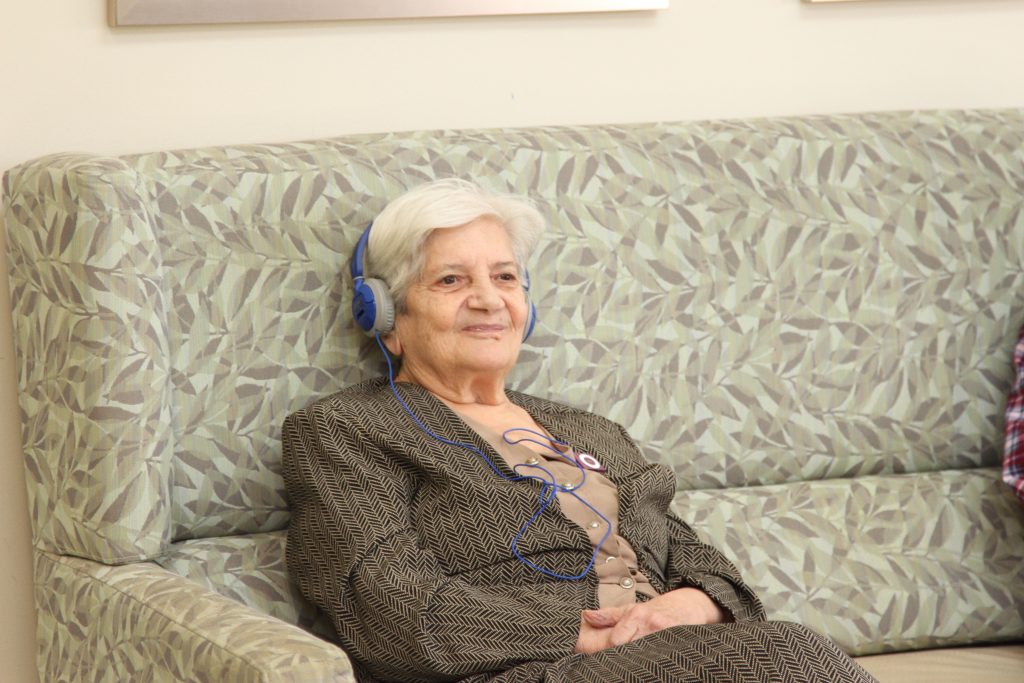Music energises people living with dementia
A music engagement programme that features individualised music on iPods is creating meaninful experiences for people living with dementia
The sound of a men’s morning tea rings out across the Miranda campus of HammondCare, as they join together in song over coffee.
These men have dementia, a progressive condition that can be marked by memory disorders, personality changes, sensory and perceptual changes (such as hearing, visual and olfactory changes) and impaired reasoning. Conversation can be difficult for people with dementia, but music helps lubricate social situations and can prompt conversations.
“I love the way music allows emotions – whether it’s happy ones or meaningful grief.” – Lois Haultain, pastoral care worker
Music is a big part of community life at HammondCare Miranda, in southern Sydney. HammondCare is an independent Christian charity specialising in dementia and aged care.
Residents live in specially designed dementia cottages, which aim to encourage autonomy and dignity for people living with dementia. During lunchtimes, pastoral care worker Lois Haultain sometimes plays the piano for residents, and many will often stop eating and sing along.
“I love the way music allows emotions – whether it’s happy ones or meaningful grief,” says Lois.
Music can often help people – and not just those living with dementia – to remember the memories associated with the time they first heard the song.

Ariel dances along to “English Country Garden” Eternity News
Peggy, a 94-year-old woman living with dementia, says, “I like music. Music takes me back. I like jazz, I really like jazz.” Peggy used to be a dancer with a jazz orchestra, and her husband was the conductor of the band. “I used to go into Circular Quay and there was a place that the jazz band would play – a night orchestra I think it was. We used to go there and just listen to the jazz.”
HammondCare has pioneered a music engagement programme to create engaging and meaningful experiences for people living with dementia. Director of the programme, Dr Kirsty Beilharz, says, “music engages many different areas of the brain, which means that even people with advanced dementia, or stroke, or a brain injury can still engage with music.”
The centrepiece of the music engagement programme is an iPod, loaded with individualised music that has meaning for the resident.
For someone like Lidia, who comes from a rural village in Italy and speaks very little English, her individualised music contains songs in Italian, connecting her to a family history that is familiar.

Lidia listens to her personalised iPod HammondCare
For George, his playlist includes Christian hymn Nothing but the blood of Jesus. When asked why that song is so precious to him he said, “When I used to get down a little bit, I’d put this on and I’d sing it to myself.”
“In dementia it would be misleading to say that music would cure or change people irrevocably who have a progressive condition. However we see hugely restorative healing, in a sense.” – Dr Kirsty Beilharz
After seeing how music energised people at a weekly chapel service, Lois decided to introduce a choir/singalong time for all the HammondCare Miranda residents. They sing show tunes, classic Australian songs like Waltzing Matilda, and even The Lion Sleeps Tonight (a-weema-weh).
And it certainly does energise people. After sitting quietly in her cottage listening to music, Lidia got up at the singalong and sang what could only be described as an Italian aria, and the grin on her face told the rest of the story.
Kirsty says, “In dementia it would be misleading to say that music would cure or change people irrevocably who have a progressive condition. However we see hugely restorative healing, in a sense.
“Healing may be just reconciling differences, or being at peace with the end of life, or being calm – not agitated and anxious through what is expected to come, or having a hope about what your eternity will look like.”
Pray
Some prayer points to help
Thank God that through the music engagement programme, some people living with dementia are experiencing a degree of restoration and finding joy in remembering past experiences.

